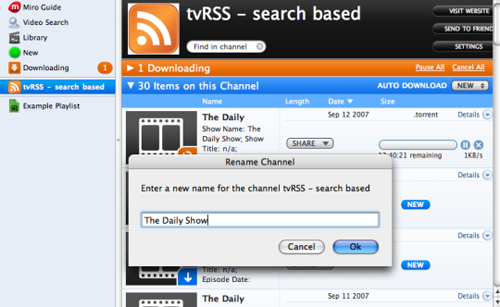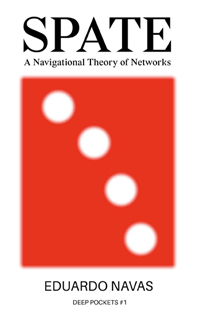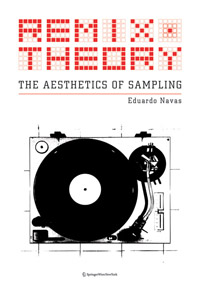TV Torrents: When ‘piracy’ is easier than legal purchase, by Chris Soghoian (Reblog)

Screenshot of Miro media player
(Credit: Miro)
Image and text source: CNet, State of Surveilance Blog
NBC’s recent withdraw from the iTunes store leaves the millions of users of Apple iPods without a legitimate way to purchase and watch NBC’s content. Could this be the push that brings easy-to-use ‘piracy’ to the masses? This article discusses the issues, and then provides step-by-step instructions to setup a computer to automatically download any of hundreds of TV shows as soon as they are broadcast and put online.
With Apple’s recent lovers’s spat with NBC making the headlines, it seems like a good opportunity to examine the state of the online TV downloads, be they paid or ‘pirated’. The end result of the dispute between the companies is that NBC’s shows, which currently count for approximately one third of iTunes’ TV show sales will no longer be available for sale at Apple’s iTunes store. Customers wishing to purchase NBC’s shows will now need to go through Amazon’s Unbox service. While Unbox supports users of Windows and TiVo, Mac users, as well as those millions of iPod users are left out in the cold. Linux geeks, and those customers who have purchased divx/avi capable portable music players are also excluded, but this small subset of the market were equally ignored by Apple.
The Apple/NBC dispute, of course, only affects US based consumers. Foreigners, due to the lengthy delay between a show airing in the US in markets abroad, have already been driven to illegal file sharing. In Australia, where the broadcast of US shows is typically delayed between 22-30 months, many viewers have given up on waiting for their favorite shows to appear on the tube, and have instead turned to BitTorrent. According to a report published in 2006, “Australians are responsible for 15.6 percent of all online TV piracy, bested only by Britain, which accounts for 38.4 percent. The US lags behind in third position at 7.3 percent.”
The legitimate and legal online media stores cannot compete with file sharing on price. Furthermore, as iTunes, Amazon, Walmart and the other stores all wrap their media in restrictive Digitial Rights Management (DRM), they cannot compete on freedom, flexibility and the ability to transfer purchased media to other devices. The only areas where they have the upper hand are in quality, and ease of use.
Warner Brothers’ China division, in a rare act of intelligence on the part of a major media company, demonstrated significant savvy last year when they began selling cheap, legitimate, high quality DVDs of movies within days of the theatrical release. By pricing the discs at around 12 yuan (approximately US$1.50), Warner is hoping to make cost a non-issue, thus allowing them to compete in one area where they hold the upper hand: Quality. Instead of taking a chance with on a low quality, shaky-camcorder copy of a film, Chinese consumers can get a high quality copy of the movie at a reasonable price, all while enjoying the warm fuzzy feeling that you can get knowing that you’ve helped to pay for some small portion of a a Hollywood star’s private jet.
Apple’s iPod makes up more than 70 percent of the overall mobile player market. With those customers now completely cut-off from NBC’s offerings, the ease-of-use advantage of legitimate purchase has been lost. While camcorder copies of films still make up a decent portion of movies on file sharing networks, the widespread availability of digital television and TV tuners in PCs means that it is trivially easy to find high-quality copies of TV shows on BitTorrent sites such as The Pirate Bay.
It’s taken some time, but the ‘piracy’ path has finally gotten to be more user-friendly and easy to use than iTunes and the other pay-services. Miro, a multi-platform RSS and BitTorrent enabled media client is now very stable, polished and fast. Using a tool such as this, and a couple minutes of configuration to subscribe to your favorite shows, it’s now possible for users worldwide to wake up to the latest episode of The Daily Show, without paying a penny, or being locked into a restrictive DRM scheme. It’s still illegal of course, but that hasn’t stopped the millions of file sharers who have made BitTorrent responsible for more than 25% of all Internet traffic.
It’s worth noting at this point, that for people in India, the Middle East and other markets ignored by the major players, Linux users (for which iTunes, Amazon and Walmart’s media stores do not work), Apple customers who wish to watch shows made by NBC or another network that won’t play ball with Apple, or Windows users who are simply not willing to submit themselves to the shackles of DRM, illegal downloads are the only way to watch TV shows on their computers and portable media players. I’m not advocating illegal activity, but merely stating the facts.
If a user wishes to break the law (or they live in a country that doesn’t respect US copyright law), lets see exactly how they could go about setting up their computer to auto-download their favorite TV shows. This information is, of course, for educational purposes only and I in no way encourage anyone to violate copyright laws.
Step 1: Download and install the Miro media player, which is available for Linux, Mac and Windows.
Step 2: Locate an RSS feed for a TV show you want to watch. One fantastic source of these is the website tvRSS.net
Navigate through the list of TV shows on the tvRSS website, and find a desired show.
On the web-page for the show, right click on the link to the RSS feed of that show, and copy the URL location.
Step 3: Open up Miro, and go to the Channels menu, and select Add Channel. The RSS address that was copied previously should already be displayed. If it’s not, paste it.
Miro should now automatically download the latest episode of that show, which it will continue to do every time a new episode appears online.
For ease of use, a user will probably want to rename the channel to something recognizable. This can be done by going to the Channels menu and selecting Rename.
By following these three steps, its possible for a user to wake up to their favorite TV shows already downloaded to their computer, waiting to be watched and without the restrictions of DRM. Users of Apple’s iPods will need to re-encode them into Apple’s proprietary Quicktime format, while those users with a Linux based Nokia N800 or one of the many low-cost .avi compatible portable media players should be able to transfer the files with little to no additional work.
As I said before, this is all totally illegal under US copyright laws, and most other western countries that have agreed to adopt similar rules. In addition to the standard risks of file sharing, US based users should take special care not to download any leaked pre-broadcast episodes of TV shows, which occasionally show up online. The Family Entertainment and Copyright Act passed in 2005 makes mere possession of such media a felony. First time offenders can face up to three years in jail. Caveat emptor.
Lascia un commento
You must be logged in to post a comment.








